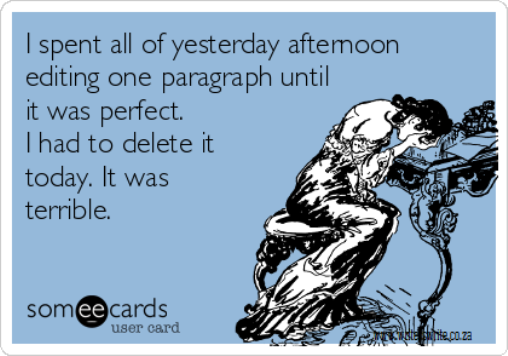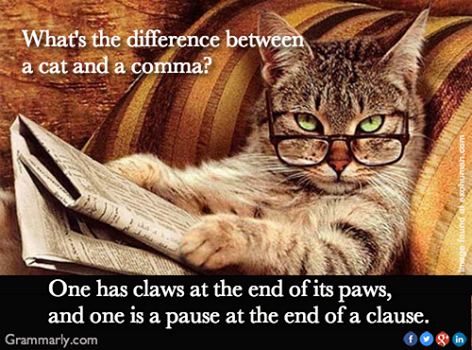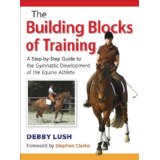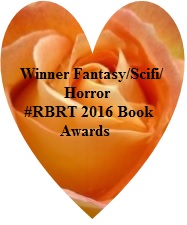So you’ve finished your book and you’ve hired an editor, right?
Hopefully you hired the right sort of editor…
‘What?‘ you say, ‘there’s more than one type of editor?’
Oh yes, folks, and if you haven’t got that piece of information yet, you need to go do some research. As an overall guide, you will find:
- structural editors
- copy editors
- proof readers
and they won’t be the same person.
Take a look at this post about editors: http://www.huffingtonpost.com/david-kudler/book-editing_b_2990583.html
Anyway, assuming you have that bit sorted, I’m also wondering, did you check your editor out first, before you hired them?
These days, anyone can advertise their services, but it doesn’t mean they are either qualified, or any good at the job. Before you hire them, do your due diligence and check them out:
- take a good look at their website: does it look professional?
- do they have testimonials from satisfied clients, and/or contact detail of where you can ask said clients about them?
- do they offer a sample edit? They should.
For more information on this, check out these posts:
https://janefriedman.com/find-freelance-book-editor/
http://thewritelife.com/how-to-find-an-editor-crucial-questions/
So, to the question posed in the title (remember that?)
What happens when you don’t agree with your editor?
Well, as with so many questions, that depends….
If you are an inexperienced or first time author, I’d highly recommend that you don’t disagree with your editor. You hired them for a reason, didn’t you? And you checked out that they were competent, nay, experienced at their job, so why would you question their advice?
This question is angled more at the author of some experience, with probably a book or two under their belts already, although I am ashamed to say, I question my first editor every step of the way.
Actually, it was a valuable experience, if a bit frustrating for us both.
In this case, I’d sold a book to a publisher, so I was assigned my editor, rather than having a choice. As such, he was, of course, both experienced and knowledgeable of the type and subject of my book. He queried places where he felt readers might be confused. He had me move paragraphs around to make for a more streamlined read. He suggested changing some words, also for clarity. He questioned parts he did not understand.
Frequent cries of: “This stupid man, why doesn’t he understand – it’s obvious!” could be heard, issuing from my room.
I did finally come to accept that most of the points he made were valid, and acted upon them.
At the end, however, I had about five items on his list that I was unwilling to change, and that was when I shared my woes with a good friend, who, happily, is an experienced author with 7 books published at that time. Her advice to me was a revelation.
“Always remember, it’s your book. If you don’t want to change it, you don’t have to.”
I was floored by this. As a first time author, I’d made the assumption that I had to make each and every change my editor called for, or else my publisher would not publish the book.
NOT TRUE.
Oh, how liberating that piece of information! I returned the manuscript with the changes my editor requested, all bar those final five items that I felt strongly should be left as they were, and lo and behold, my book was published, as I wanted it to be.
Now this was non-fiction, but exactly the same applies to fiction: if you’ve written something exactly the way you wanted it to read, and you feel strongly enough about it despite your editor’s suggestions – remember that you don’t have to act on every single suggestion that your editor makes.
Most of the time, they are probably right. But always remember that it’s your book, and you wrote it that specific way, because that’s how you want it to read.
This applies also to line and punctuation suggestions – if you have the experience as an author, you will sometimes break ‘the rules’ deliberately, and that can be about ‘voice’ – that indefinable quality that makes a book specifically and recognisably yours, as opposed to just any old author’s. You may have done it to change a specific emphasis, or because your character’s dialogue needs to be true to them – and who knows your characters best?
Why, you, of course.
So whilst you should always, always take editing suggestions on board, also remember that it is entirely up to you to decide whether to implement them.
How about you? Have you disagreed or ignored any of your editor’s advice?
Go on, be a devil – admit it!


























I am scared of editors.
My books are whimsical. Editors hate whimsy!
LikeLike
Sounds to me like you haven’t found the right editor! There’s a place for all types of book, so there must be editors for all too, surely?
LikeLike
Very good points, all round. Your experience is similar to mine–and I will say this: smart editors have their own work professionally edited, and should have some understanding of what the experience is like from the author’s POV.
LikeLiked by 1 person
Good point – and I’ve found it helps to think of editors as human, not as some dastardly force intent on criticising your work just for the sake of it. I guess it’s because we feel so protective of our own work that we sometimes take it that way.
LikeLike
Maybe you’re right.
or,
Maybe they are scared of me!
Eee-Aye-rRoark!
LikeLiked by 1 person
Lol 😀
LikeLike
Deborah, as an editor, I so absolutely agree with finding the right editor for the right job. There definitely should be educational and work experience credentials. I always show examples of my work and give references from authors I have edited for. This was extremely well done.
LikeLiked by 1 person
I’ve been fascinated to discover how many authors are also editors – but I guess I shouldn’t be surprised, as who knows the workings of a book better than one who writes them?
Although I do wonder where you guys find the time to do both!
LikeLiked by 1 person
It’s a huge problem to do both. I’m always juggling projects and letting my own writing sit. When I first started taking on clients after 20+ years as a technical writer editor for the Army, I didn’t have time to write at all. You really switch hats when you’re reading for pleasure, reading for content, and editing. I mentor new authors as I go along. I can’t see knowing there’s a structural issue and not addressing it immediately. Everything that comes after will be affected by the content and development–consistency, clarity, accuracy. And never, never, never try to edit or proofread your own material. It just doesn’t work. Editors need editors too. lol
LikeLiked by 1 person
Quite! We can all be so blind with our own work – strange the way the mind does that, isn’t it?
Although I don’t edit professionally, I do a lot of critiquing, and I hate to say it, but I really can’t shut off that mode when I’m reading. It’s made me far choosier about what I’ll read for pleasure, because it has to be good!
LikeLiked by 1 person
If I begin a book for pleasure or editing, I always retain the right to bury the roses dying on the vine. Unless the plot is fabulous, and I find I can help unscramble the tangle. All writers write themselves into a corner at some point. That’s when a critique is essential. If your beta reader or editor gets lost in the flow of action, rewrites are in order. Every book I’ve ever written, I get angry with at some point and want to toss in the trash. That’s when it time to set it aside or seek professional help. Writers helping other writers brings out the best in all of us. 🐣 Birth and renewal sums up the writing process.
LikeLiked by 1 person
I’m going through this (painfully) right now, with structural edits to The Prince’s Son. Parts I thought made sense apparently don’t, and some motivations are not strong enough to drive the action, leaving some of the plot points too contrived.
But hey, that’s why we have critiques and editors. I may not enjoy this bit, but I do know the book will be all the better for it.
LikeLiked by 1 person
It gets better the more you dissect the plot. Sometimes, since only you know where the story is headed, you miss the the build-up needed to establish the premise. We cannot always see our own roadmap. The reader needs the map that we inadvertently suppress. Catch 22 in action. lol.
LikeLike
Exactly. I work from only a rough outline, with plenty of latitude for the plot to take its own route between my start and finish points, so much of the first half of the book is my characters figuring out how they are going to get to where I want them for the ending!
I know the advice is to plot before getting going, but for me, that takes out a large chunk of the creativity of writing, so I’m resisting it, and sticking half way between plotter and a pantser. Again, I know that means more re-writing at the end, but I’ve enjoyed the process of getting there, and I think it shows in my writing.
LikeLiked by 1 person
I’m very much like you in that I have a “points” roadmap, so to speak, of where I want to take the story. Then, I let the characters take on a life of their own, and sometimes they have ideas I never considered, which usually are interesting, if not better. For a short time in my twenties, I did musical theatre. I act out all my scenes: screaming, crying, laughing, being sarcastic. It really adds realism. I could see you as an actress too!
LikeLiked by 1 person
Oh yes, I’m a Sagittarius – born to perform!
Guess that’s why I do a performance sport for a living 😀
LikeLiked by 1 person
Aries, fire sign. This weekend, in fact. BUT I have Pisces rising and my moon is in Pisces. The Aries is the performer, the Pisces the writer/performer/musician, artist.
LikeLike
Aha! Another fire sign. Hence the performer’s nature and the fiery hair 😉
LikeLike
Reblogged this on Kate McClelland.
LikeLiked by 1 person
Thanks Kate 😀
LikeLiked by 1 person
Excellent post my friend. Agreed on all counts. Granted, we learn a lot more and take a few more liberties once we have a few books under our belts, but a good editor knows better than us sometimes. Although like you said, we sometimes feel we have to stick to our guns when it comes voice. And most importantly, we have to mesh well with the editor to feel trusting and comfortable. I had a horrible experience, experimenting with a highly recommended editor. It was a nightmare. She demanded I change almost every line, and my voice was stripped and the book read so blah and clinical. It’s especially tricky when writing nonfiction/memoir in your own voice and not recognizing yourself as the writer. I had to pay her, and ran back to my original editor with my tail between my legs and paid again. Many lessons learned. 🙂
LikeLiked by 1 person
Ouch – both for the experience and the pocket! But good on you for going back to your original editor – you most definitely do not want your authorial voice stripped away. I’ve heard of this happening, and it makes me cringe, just to think about it.
LikeLiked by 1 person
Oh yes, I cried and was so close to ripping up my book. Thanks to a few writing friends, I got back on track. PS, I’ll be reblogging this post in the next week or so. Give it a chance to circulate and percolate then I’ll reblog. 🙂
LikeLiked by 1 person
Cheers! 😀
LikeLiked by 1 person
Reblogged this on Judith Barrow.
LikeLiked by 1 person
Cheers! 😀
LikeLike
Good article. I fight for the authors voice, first but strive for technical perfection if that is even possible. There can be a happy balance. Honesty with your editor is key. If I have something that we are “fighting” over, first technical … is there a rule that supports why it really doesn’t work, I share it … then is it really relevant to the storyline and something the readers will “get”… and if still not on same page it comes back to “if it isn’t technically wrong or just really bad reading, the author is right and we will compromise. I pick my battles. 😉
LikeLike
And dang! I should edit myself before posting!
LikeLiked by 1 person
Always the way!
LikeLike
Yes, picking the battles is key, but even before that, it’s about picking the right editor for you; there’s definitely no ‘one size fits all’ in this business.
LikeLike
Yes. I am what my publisher and authors call a “hand holder” and tend to be more easy going than others which is what was needed for several of my authors. Not that they were needy or unprofessional but some just need less drama than others and I’m pretty drama free unless the author just becomes unreasonable. I try to make the editing process as pain free as possible but we all know, it’s hell. lol That being said, I listened, explained, comforted when necessary and gained trust quickly so the medicine went down much easier. Sometimes, I feel that editors can be too legalistic or try to rewrite to their taste, not the authors and that makes it harder to truly have a good working relationship. I’d like to think that most of my authors considered me a “friend” during the editing process knowing I had their back and wanted the best possible version of their story. That is always my goal. THEIR story being key. Not mine or what I thought it should be. If that makes sense. 🙂
LikeLiked by 1 person
Total sense 😀
Your approach is exactly what’s needed in most cases, authors tending to be rather fragile in their confidence until they are well established in their careers, which is probably a good thing in some ways, as it makes them more open to the learning process.
It is unfortunate that some editors don’t seem to appreciate quite what their job is, in terms of author voice over pedantic ‘correctness’ if you will.
I’m certainly not condoning throwing the rules of grammar out the window, but style sometimes precludes slavish adherence to every detail.
Thanks for adding your comments on this ticklish subject.
LikeLike
Thank you, good advice for when I finally get an editor.
LikeLiked by 1 person
You are most welcome. Always remember that your relationship with an editor should be one that works for both of you. If you are choosing your own, take the time to find the best fit.
LikeLike
Ther relationship between editor and writer is so important! Thanks for the in-depth information about editing 🙂
LikeLiked by 1 person
Hi Christy, thanks for dropping in. As you say, it is a very important relationship, it just sometimes needs a bit more clarity to the dynamics as I’ve discovered!
LikeLiked by 1 person